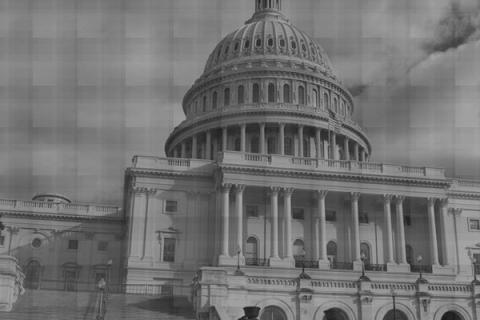Though the public's confidence in the federal government has plummeted to record lows over the course of the last decade, the same cannot be said for state and local government, according to a new survey by the Pew Research Center.
In 2002, roughly two-thirds of all Americans held a favorable view of local, state and federal government. In the last ten years, however, public confidence in the federal government has plummeted over 50%, led in large part by the failures of Republican and Democratic party leadership in the Congress. The favorability of state and local government has also declined, but not nearly as precipitously. The survey, conducted last month, found that just 33% of those polled had a favorable view of the federal government, compared with 52% who had a favorable view of their state government and 61% who viewed their local government positively.
For Democrats and Republicans, the favorability of the federal government appears to have more to do with the partisan composition of that government, and more specifically, the partisan identification of the president, than anything else. In April of 2008, President Bush's last year in office, Pew found that just 37% had a favorable view of the federal government, including 53% of Republicans and 29% of Democrats.
This year, the numbers are essentially reversed: only 33% have a favorable view of the federal government, including 51% of Democrats and just 20% of Republicans. The predictability of these sorts of reversals in opinion among partisans of the major parties would be comical were it not so tragic.
Given this phenomenon, it is noteworthy that the opinion of Independents has remained relatively steady over the same period. In April 2008, only 33% of Independents had a favorable view of the federal government. As of last month, that number had fallen to 27%.
Disgust at the failings of Republican and Democratic party leadership at the national level does not yet appear to have translated into a similar contempt for party government at the state and local level. The 52% of those who had a favorable view of their state government included 62% of Republicans, 50% of Democrats and 49% of Independents. At the same time, however, it appears difficult to find a majority who hold a positive view when queried about specific characteristics of their state government.
A separate Pew survey from last month found that just 49% of those polled believe their state government is “mostly honest,” and the numbers fall off from there: 42% said they believe their state government addresses people's needs, 38% said their state government is generally efficient, 36% stated that officials can work together to “get things done” and just 33% thought their state government is careful with the people's money.
Local government fared best among the respondents to Pew's poll, with an overall approval rating of 61%, including 66% of Democrats, 65% of Republicans and even 56% of Independents.
How can we account for the direct correlation between locality and favorability? Perhaps the simplest answer lies in the ratio of representatives to the represented. Today there are nearly 700,000 Americans for every member of the House of Representatives. Needless to say, the gulf between the people and their representatives is not nearly as large at the local and state level. Fortunately, this disconnect between the American people and the federal government has an obvious solution: is it not time to enlarge the House of Representatives?

